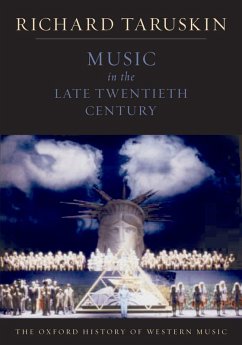
Sounds of the Metropolis (eBook, ePUB)
The 19th Century Popular Music Revolution in London, New York, Paris and Vienna
Versandkostenfrei!
Sofort per Download lieferbar
14,95 €
inkl. MwSt.
Weitere Ausgaben:

PAYBACK Punkte
7 °P sammeln!
The phrase "popular music revolution" may instantly bring to mind such twentieth-century musical movements as jazz and rock 'n' roll. In Sounds of the Metropolis, however, Derek Scott argues that the first popular music revolution actually occurred in the nineteenth century, illustrating how a distinct group of popular styles first began to assert their independence and values. He explains the popular music revolution as driven by social changes and the incorporation of music into a system of capitalist enterprise, which ultimately resulted in a polarization between musical entertainment (or "...
The phrase "popular music revolution" may instantly bring to mind such twentieth-century musical movements as jazz and rock 'n' roll. In Sounds of the Metropolis, however, Derek Scott argues that the first popular music revolution actually occurred in the nineteenth century, illustrating how a distinct group of popular styles first began to assert their independence and values. He explains the popular music revolution as driven by social changes and the incorporation of music into a system of capitalist enterprise, which ultimately resulted in a polarization between musical entertainment (or "commercial" music) and "serious" art. He focuses on the key genres and styles that precipitated musical change at that time, and that continued to have an impact upon popular music in the next century. By the end of the nineteenth century, popular music could no longer be viewed as watered down or more easily assimilated art music; it had its own characteristic techniques, forms, and devices. As Scott shows, "popular" refers here, for the first time, not only to the music's reception, but also to the presence of these specific features of style. The shift in meaning of "popular" provided critics with tools to condemn music that bore the signs of the popular-which they regarded as fashionable and facile, rather than progressive and serious. A fresh and persuasive consideration of the genesis of popular music on its own terms, Sounds of the Metropolis breaks new ground in the study of music, cultural sociology, and history.
Dieser Download kann aus rechtlichen Gründen nur mit Rechnungsadresse in A, B, BG, CY, CZ, D, DK, EW, E, FIN, F, GR, HR, H, IRL, I, LT, L, LR, M, NL, PL, P, R, S, SLO, SK ausgeliefert werden.













